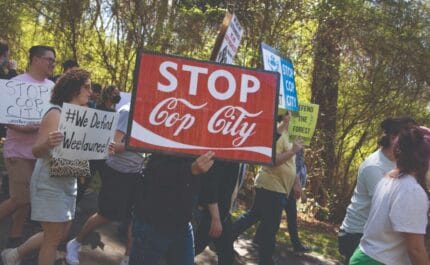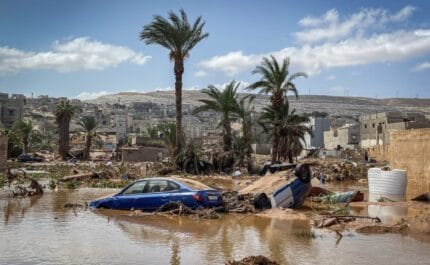A kind of magic
Photojournalist Tommy Trenchard spent a year chronicling Cape Town’s College of Magic – a Hogwarts-like school that trains young people in the art of illusion. But there’s more to the place than top hats and disappearing rabbits. When the college launched a new programme aimed at bringing magic to the poorest areas of Cape Town, we spoke to Trenchard about how it has become a force for change in the world’s most unequal nation
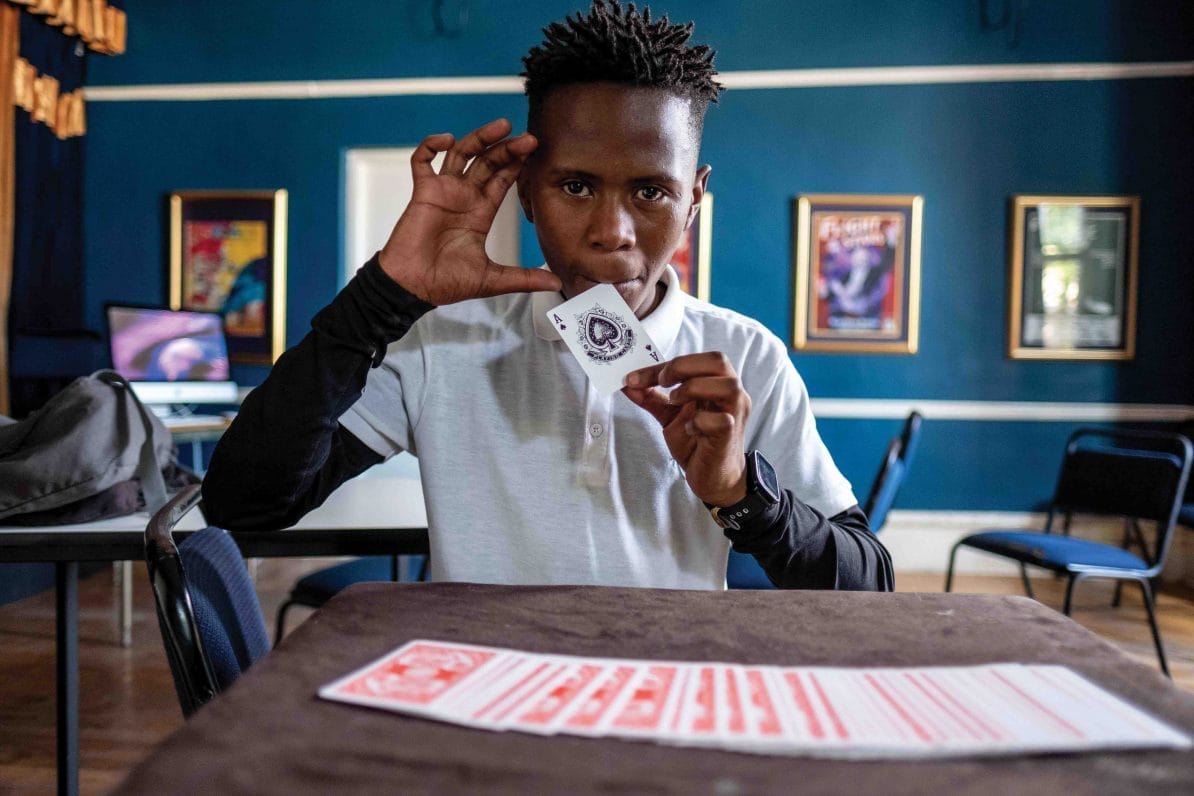
Duma Mgqoki, a student at the Cape Town College of Magic, practises a card trick in an empty classroom. Photo: Tommy Trenchard
13th October 2021
“It definitely feels like an unusual place,” says photojournalist Tommy Trenchard of the College of Magic, the spellbinding Saturday school he has been documenting over the past year. “Everywhere you look students are practising card tricks, juggling balls or riding unicycles. There’s a little dove and rabbit coop behind the school where they keep animals to be pulled out of hats. Inside you’ve got doorways hidden behind fake bookshelves, the stairs are crooked and you see a lot of bow ties and waistcoats. It’s just a magical place, there’s no other way to describe it.”
But it’s not just the spangly attire, wonky interiors and hat-born bunnies that make this converted Victorian mansion in a leafy Cape Town suburb so special. “It’s a version of what Cape Town could be, or what it hopefully will be,” says Trenchard. “Everything is totally mixed: age groups, ethnic groups, socioeconomic groups… which doesn’t sound particularly unusual but according to the World Bank, South Africa is still the most unequal and divided country on the planet, more than a quarter of a century after the end of apartheid. So here is a rare space where people can come together and share ideas and experience magic together.”
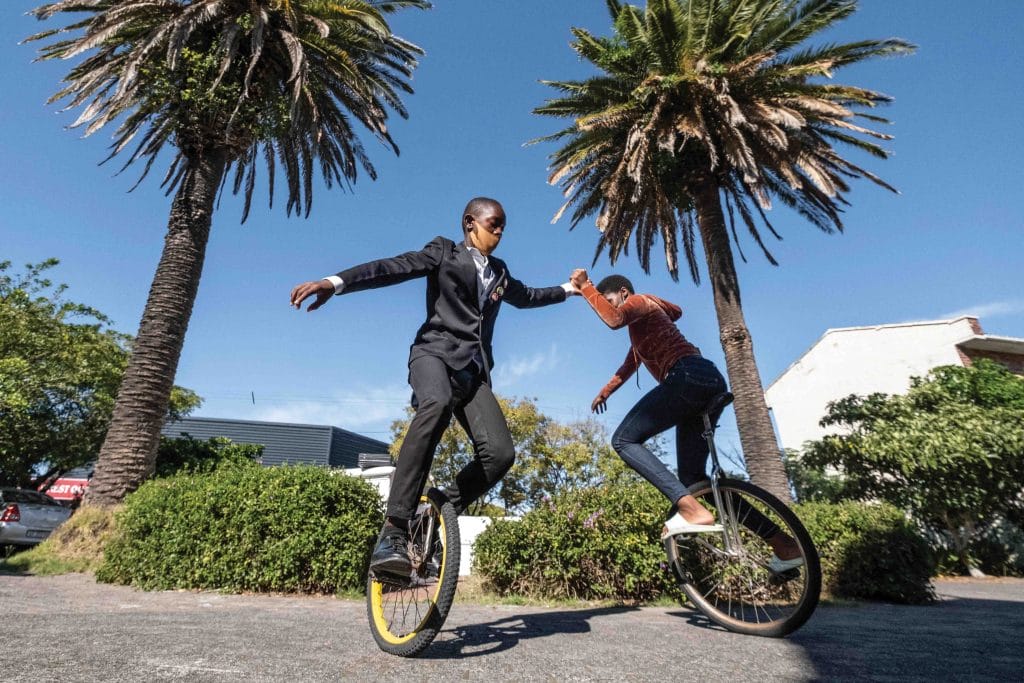
Practising using unicycles in the college grounds between classes. Photo: Tommy Trenchard
The Hogwarts of Cape Town had a flamboyant start. In 1980 David Gore, a law student from a long line of magicians, decided that he wasn’t cut out for a legal career. His true calling was magic. “He felt there was a gap in the educational landscape for a magicians’ school, so he and a friend decided to do something about it,” says Trenchard. “One day they walked into a local newspaper offices clad in top hats and tails and announced that they were starting a school. The paper put the word out. Within a year they had 35 students.”
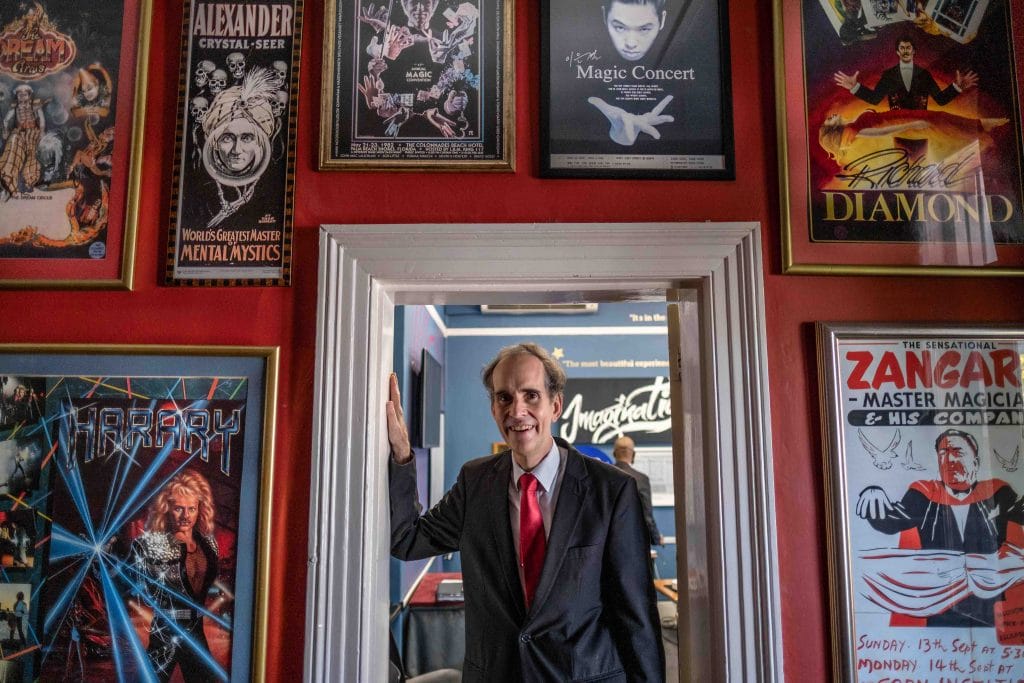
David Gore founded the college in 1980, defying the apartheid government by teaching multiracial classes. Photo: Tommy Trenchard
Gore’s school was run on a shoestring, with him teaching tricks in whatever space he could find. But the students kept coming in from across a very divided city. “In 1980 South Africa was still in the grips of apartheid,” says Trenchard. “Students of different races weren’t even allowed to travel in the same railway carriages, and state schools were still strictly segregated. But Gore wanted the College of Magic to be open to everyone”.
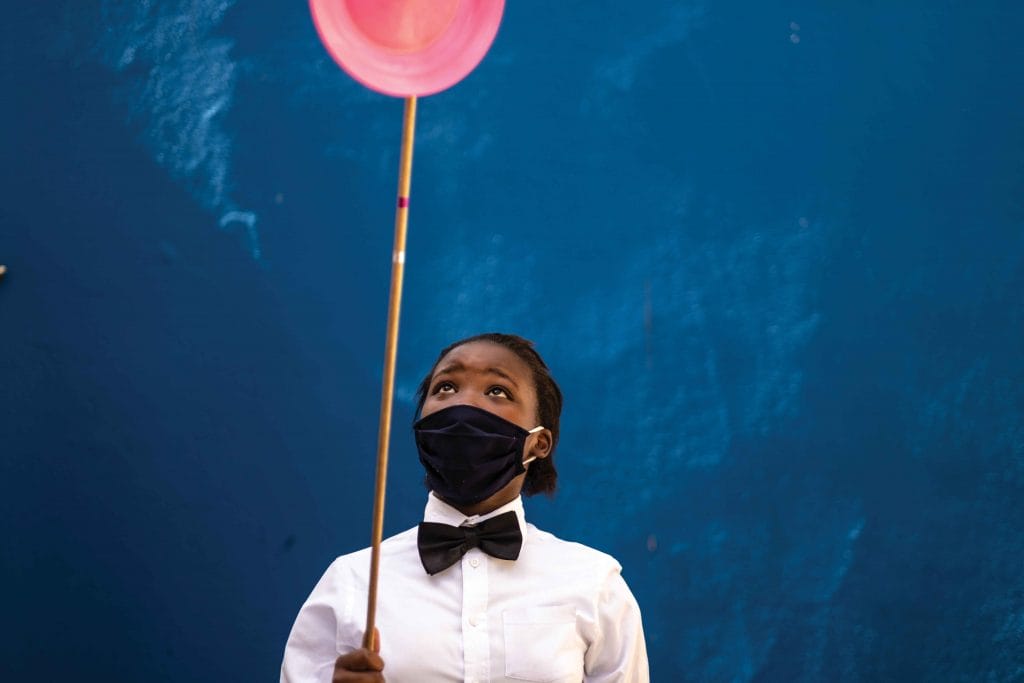
Khanya Ncusane, an 11 year old from the township of Khayelitsha, practises spinning plates. Photo: Tommy Trenchard
Soon Gore realised that what he was teaching went beyond mere sleight of hand. “When he started the school it was all about the magic,” says Trenchard. “But it became something much more than that.” Rather than just a place to train the conjurers of tomorrow – “there are only so many magicians a city can support,” notes Trenchard – the school was giving students other valuable lessons. “They teach magic tricks, but they impart so much more than that,” says Trenchard. “There are so many personal benefits that the students acquire: self confidence, lateral thinking, communication… The staff say that they see incredible changes in the students in really short periods of time.”
Gore actively encouraged children from the poorest parts of the city to join the College, visiting schools in townships to spread the word. The college became a non-profit organisation with classes on Saturdays, so students could attend regular school in the week. “[Much of] their funding comes from corporations and private donors,” says Trenchard.“It means sponsored students have all their expenses covered. But there are a lot of students from some of the wealthiest parts of town as well, all side by side in classes. Which is very rare in this city and allows the students exposure to other groups that they wouldn’t necessarily have much interaction with otherwise.”
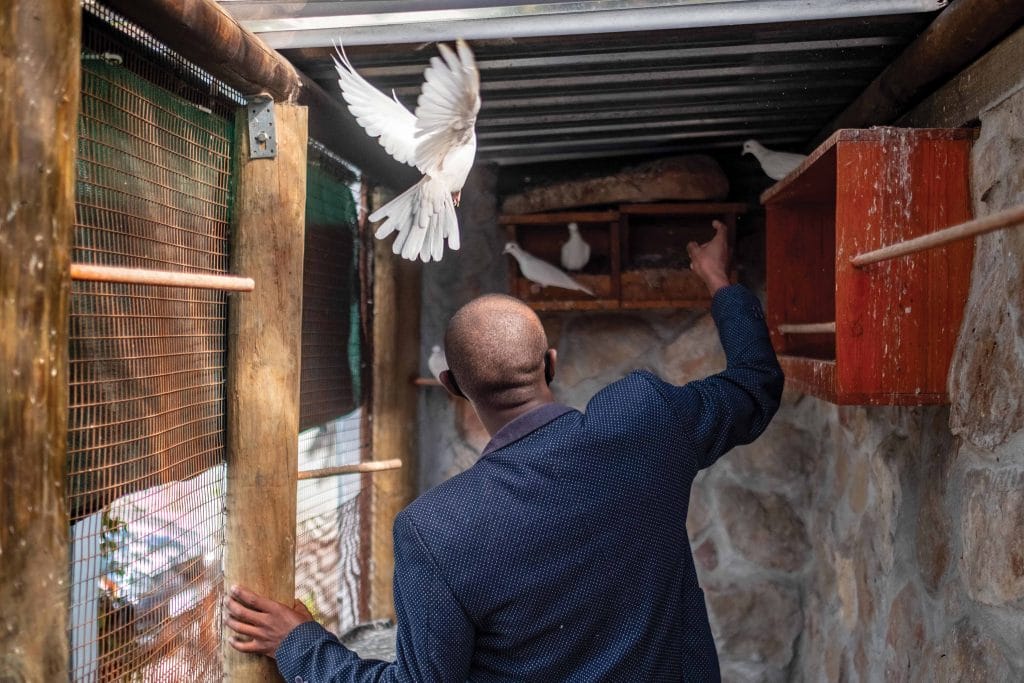
The college keeps doves and several white rabbits to be used in tricks. Photo: Tommy Trenchard
The school currently has 140 students and since 1980 more than 3,000 have passed through the College’s door and up its skew-whiff staircases. “I think Gore knows that all of them have benefited in some way from their experience,” says Trenchard. “That’s become the main driving force for him.”
One of the college’s former students is Anele Dyasi. Now 23, Dyasi first came to the school at the age of nine. “Anele comes from the Khayelitsha township, where there are few jobs, high rates of crime and gangsterism, and he has managed to completely turn his life around,” says Trenchard. “He turned up having not really experienced anything beyond his own community, and within a few years he’d become this incredible magician.”
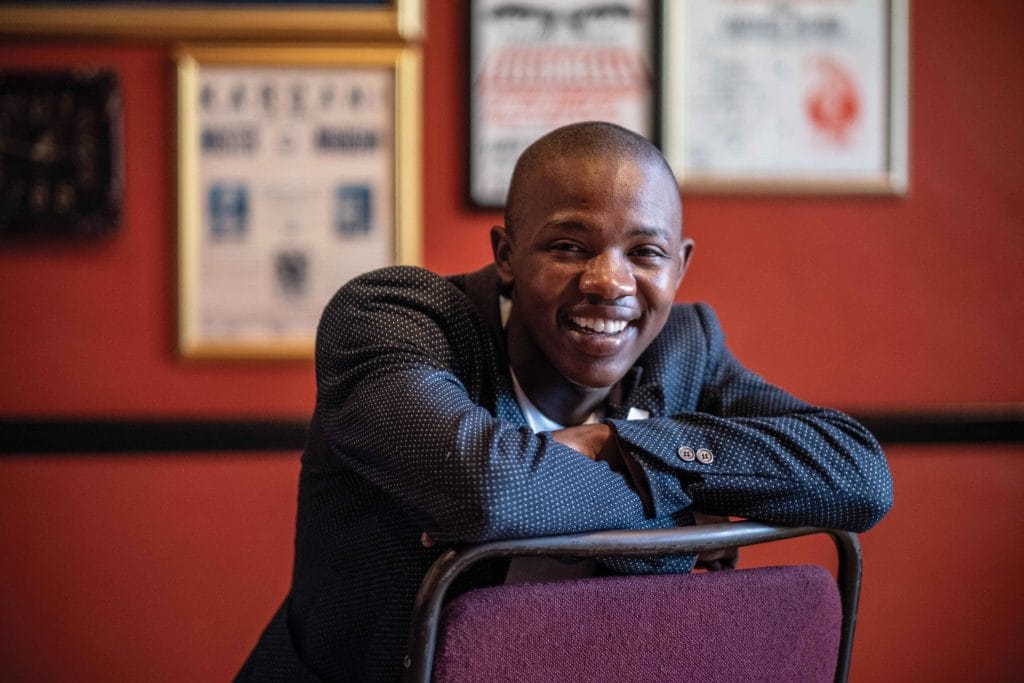
Anele Dyasi has travelled the world performing at magic competitions and conventions since graduating. Photo: Tommy Trenchard
After graduating, Dyasi became a professional entertainer, performing shows across South Africa and abroad. “He’s now an icon for the students,” says Trenchard. “He’s travelled the world, he’s represented South Africa at magic, and he’s turned into a confident, self assured guy, in a way that he feels he would never have been able to if it weren’t for the school.” Dyasi now teaches at the school whenever he can. “When he’s in front of a class you can see how much he enjoys sharing his skills with the next generation,” says Trenchard. “He’s in his element.”
Anela Gazi is another former student that Trenchard got to know while documenting the school. “She also comes from a part of Cape Town where there aren’t many opportunities for young people,” says the photographer. “A lot of her peers had become hooked on drugs at an early age, and she says she experienced a lot of trauma in her youth before discovering the school”. Since graduating, Gazi has launched her own business and she credits the school with giving her the confidence to become an entrepreneur. “Just like Anele, she is overflowing with gratitude for what she feels she’s gained from the school,” says Trenchard. “The word she used was ‘strength’, it gave her the strength that she needed to break out of a negative cycle and build something for herself.”
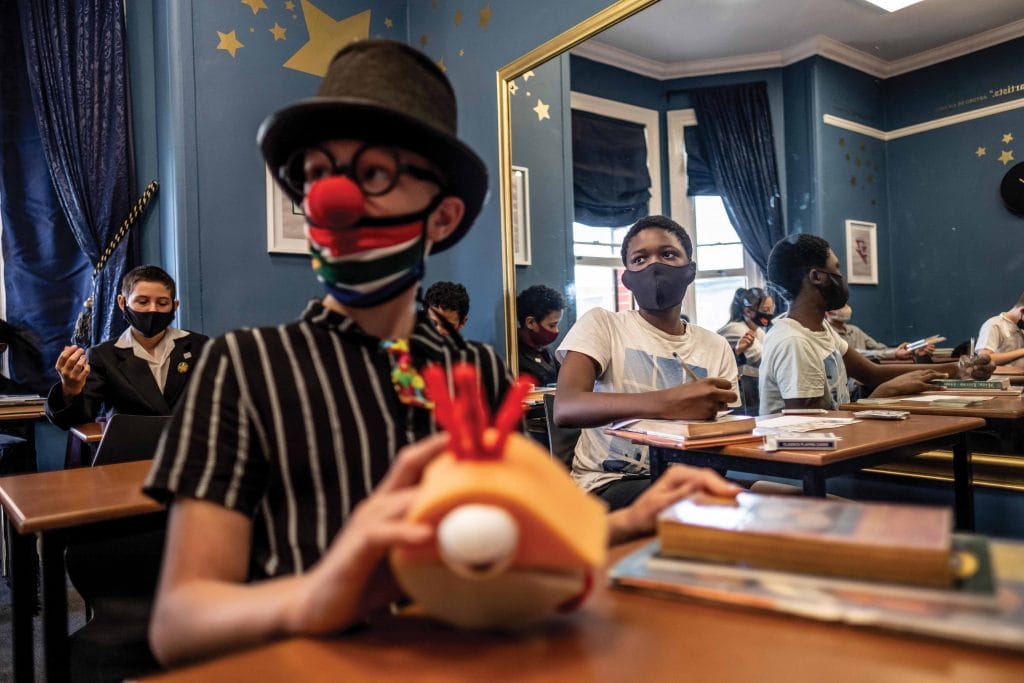
Students in class at the Cape Town College of Magic. Photo: Tommy Trenchard
Keeping the College of Magic going is not cheap – the annual costs for maintaining the building, classes and the projects in the community run to five million rand (£242,746). When Covid struck in 2020 the school’s position at first looked untenable. “South Africa had particularly hard lockdowns early on in the pandemic and students couldn’t come in,” says Trenchard. “The college’s funding is not immune to wider global economic forces and it really did impact them.”
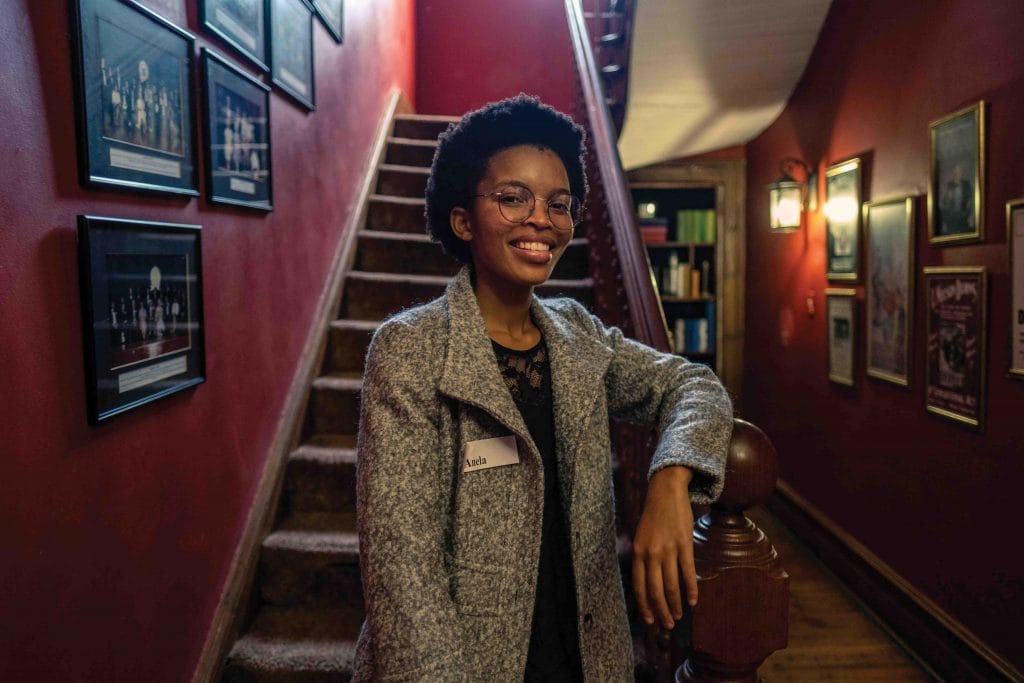
Anela Gazi, a recent graduate of the Cape Town College of Magic, says her time at the college transformed her life. Photo: Tommy Trenchard
But the school adapted, offering lessons online and hosting digital fundraisers with graduates who had gone on to careers in entertainment including comedians Stuart Taylor, Conrad Koch and Riaad Moosa. “The college found a way to get through,” says Trenchard. “Hopefully there’ll be easier times ahead.”
There was a sense of relief when the College was able to start putting on shows again after lockdown restrictions were eventually lifted. The first of these took place at the prestigious Artscape Theatre in central Cape Town and Trenchard was there to document it. “It was great to see the students putting everything they’ve learned into practice,” he says. “At the end of the show, after the performers had taken their bow, glitter cannons were fired from the wings. Everyone [on stage] just started dancing and having a good time. Many of the stories I cover are quite bleak – it was such a pleasure covering one with just pure, unfettered joy.”
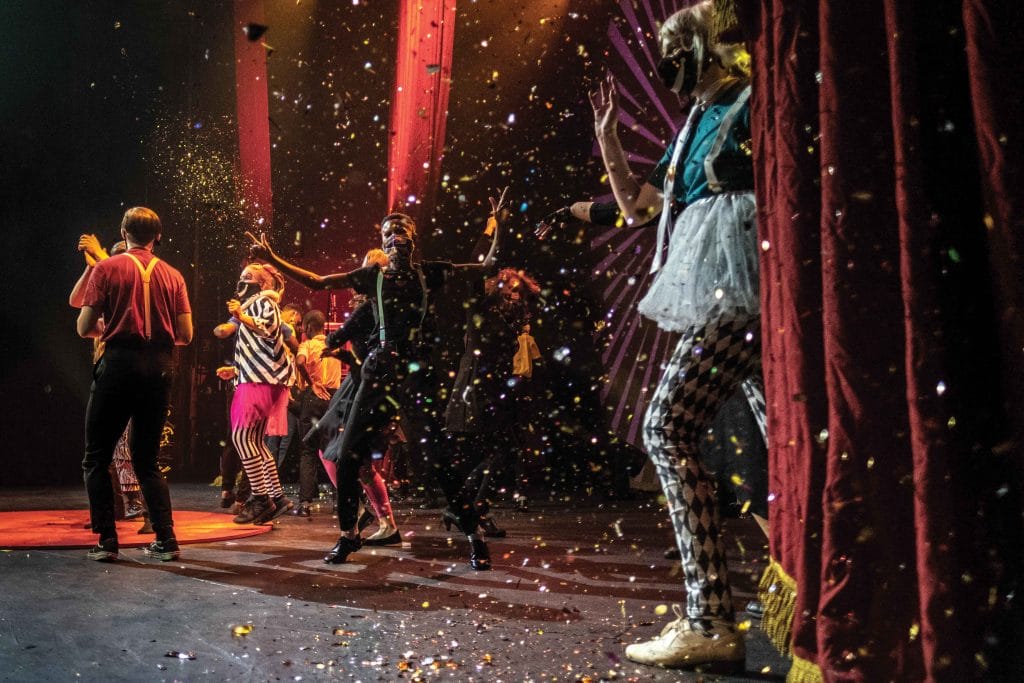
Confetti falls over performers at the end of a show at the Artscape Theatre in Cape Town, South Africa, 5th June 2021. Photo: Tommy Trenchard
Trenchard will continue to document the school and its graduates, but there are limits to what he is allowed to shoot. “At one point I was asked politely to step outside while one of the teachers explained a trick to their students,” he says. “And backstage at their show I had to be careful not to shoot anything that would give away the tricks of the trade. That’s taken very seriously in the Magic Circle, and with good reason because without a bit of mystery there’s nothing.”
Slow Journalism in your inbox, plus infographics, offers and more: sign up for the free DG newsletter. Sign me up
Thanks for signing up.
